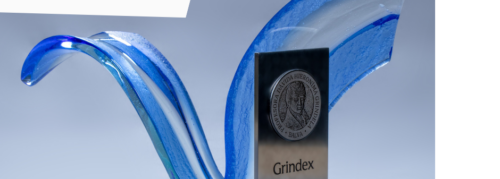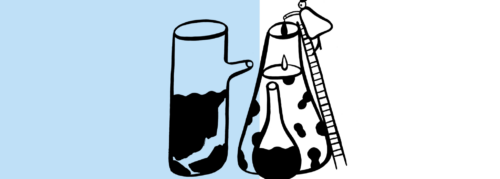On Wednesday, March 12, PAS Grindeks, the largest pharmaceutical company in the Baltics made an important entry both in its history and that of the entire Latvian pharmaceutical industry, becoming the first in-house pharmaceutical manufacturer, to receive the Good Manufacturing Practice (GMP) certificate.
The GMP certificate determines the requirements for the manufacture of medicines and the supervision thereof in compliance with global quality standards. Accordingly, Grindeks has demonstrated that a Latvian pharmaceutical company, by investing capital and intellectual resources, is also able to manufacture in accordance with global quality standards.
Why is GMP necessary?
During the past few years, satisfaction of the requirements of the Good Manufacturing Practice Certificate regarding pharmaceutical plants has emerged as one of the priorities for Latvian pharmaceutical companies. In accordance with the legal stipulation currently in force, if, by the time of accession to the European Union, pharmaceutical manufacturers have failed to adapt their manufacturing processes in accordance with the requirements of GMP, they will be compelled to cease manufacturing medicines in Latvia. However it would be wrong to believe that the implementation of the requirements of GMP is a desire restricted to the State pharmaceutical institution responsible or to civil servants in Brussels. Of course, compliance to the standards of Good Manufacturing Practice is, firstly, in the interests of those using medicines, because it is the most direct confirmation that a medicine is not dangerous and will not induce unforeseen side effects. Secondly, compliance with the requirements of GMP is undeniably necessary for the pharmaceutical manufacturers themselves, because it certifies that a company manufactures quality products. Moreover, it creates opportunities to enter markets which had previously been off limits to the manufacturer in question for the simple reason that it did not possess this certificate.
Grindeks first to receive GMP
Even though the idea of the obligatory implementation of GMP in Latvian pharmaceutical companies in accordance with law came to the fore in the mid nineties, Grindeks began the implementation of these requirement back in the seventies. This was necessary to pave the way for the company to export its Ftorafur brand product to Japan. Naturally, these were only the first steps in the implementation of a manufacturing process that conformed to global standards. Nevertheless, the experience acquired back in those days proved useful at the beginning of the nineties, when systematic work commenced on attaining the internationally recognised certificate.
The implementation of the Good Manufacturing Practice requirements within the company required many years of work and considerable financial investment. Grindeks Chairman of the Board, Valdis Jākobsons admits: “At first, Grindeks invested at least 300,000 lats annually in the implementation of GMP requirements; however, in recent years annual investments in plant development have risen to around one million lats.”
In total, the company has invested around ten million lats in the implementation of GMP. Significant resources have been invested in both the modernisation of manufacturing equipment and the education of employees. The education of employees in particularly important, because the implementation of GMP places special emphasis on the need for every employee to know and observe the principles of quality manufacturing.
Systematic work and investments in the modernisation and development of the company ensured that in 2000, Grindeks became the first Latvian pharmaceutical manufacturer to succeed in adapting one of its plants (tablets and capsules) incompliance with the requirements of GMP. This was the highest achievement among Latvian pharmaceutical companies in the area of quality introduction right up to March 12, 2003 when Minister for Health, Āris Auders presented the Good Manufacturing Certificate with the first number to Grindeks Chairman of the Board, V. Jākobsons. Accordingly, Grindeks is the first pharmaceutical manufacturer inLatvia that has succeeded in arranging its manufacturing processes in accordance with the requirements of the internationally recognised GMP certificate.
At present, almost 90% of the products manufactured by Grindeks are exported abroad to a total of 36 countries around the world. The most important markets in terms of sales are Russia to which 24.3 % of all products are exported followed by the CIS states – 23.2% and Japan, USA, Ireland and the United Kingdom.
Quality and growth go hand in hand
Recently, Grindeks published the unaudited operating indicators from 2002. The previous year was a successful one for the company, because Grindeks’ turnover was 15.8 million lats, which is 32% more than in 2001. The rapid growth in turnover is also attributable to Grindeks’ implementation of a quality strategy that incorporates not only the improvement of the manufacturing process, but also environmental aspects and work safety issues. During the past year, the company has signed up to the UN’s Global Compact and the global chemistry industry’s programme Responsible Care. These are voluntary programmes at the base of which is an undertaking to continually improve the protection of the surrounding environment, promote work safety and care about human welfare. V. Jākobsons believes that this is the optimal model for development, because the company’s growth is weighed against the interests of the surrounding environment and the welfare of both employees and society as a whole.
Grindeks and global trends
Today, pharmaceutical companies are always on the lookout for new forms of mutual co-operation and rapid processes of globalisation and specialisation are taking place. In order to compete in global markets, pharmaceutical manufacturers in the Baltic States must also be united. Therefore, in 1998, Grindeks acquired a majority shareholding in the Tallinn Pharmaceutical Plant (TPP). However, during the past year, it has transferred the TPP’s tablet and capsule plant to Riga, because today it is no longer economically viable to manufacture in two places.
Moreover in 2000, Grindeks commenced co-operation with the largest Lithuanian pharmaceutical company, Sanitas. In 2002, the closure of the ampoule manufacturing process at Grindeks was completed and currently they are manufactured in Kaunas by the Sanitas company. This co-operation is mutually advantageous – as a result of taking over Grindeks’ production, Sanitas’ turnover has risen by 50%, whereas Grindeks is free to concentrate its resources on the manufacture of tablets and capsules. This indicates that this type of co-operation ought to be further developed in the future. Therefore, the idea of establishing a Baltic pharmaceutical holding company has come to the fore.
In order to preserve and reinforce established market positions, it is important for pharmaceutical manufacturers to also invest capital in the research and launch of new products, because currently leading pharmaceutical companies devote a large part of their investments to this particular area. Grindeks too is planning to significantly increase its investments into the research and launch of new products. In 2003, the company plans to invest 8% of its turnover in this area, moreover, henceforth, a structure – the New Products Council -dedicated especially to this goal will operate within the company. Besides Grindeks’ leading employees, scientists, doctors and other specialists linked to medicine will work within the structure that will generate new ideas and consult specialists working on the company’s development. This is particularly important bearing in mind Latvia’s forthcoming accession to and integration into the European Union, where it will encounter heightened competition and where thinly pharmaceutical manufacturers able to operate seriously will be those who fully comply with international standards.
Facts: Grindeks’ road to the GMP certificate
- The first steps towards the introduction of the Good Manufacturing Practice standards were taken in the 1970’s, when co-operation with Japan began.
- Systematic work on meeting GMP requirements commenced in the early 1990’s.
- In 1998, Grindeks received the Latvian Quality Award; the Hungarian State Pharmaceutical Agency’s recognises the compliance of the plant where Ftorafur active ingredients and forms of peroral medicines are manufactured to the requirements of Good Manufacturing Practice.
- On June 27, 2000, Grindeks’ plant manufacturing tablets and capsules receives the Good Manufacturing Practice (GMP) certificate issued by the United Kingdom’s Medicine Control Agency.
- In November, 2001, the Food and Drug Administration (USA) recognised the compliance of the plant where Oxitocine is manufactured to USA quality standards.
- In 2002, Grindeks signs up to the voluntary international programmes, Global Compact and Responsible Care that are directed towards the continual improvement of the areas of environmental protection, public safety and quality of life.
- On March 12, 2003, Grindeks receives the Latvian State Agency of Medicines’ Good Manufacturing Practice certificate.


